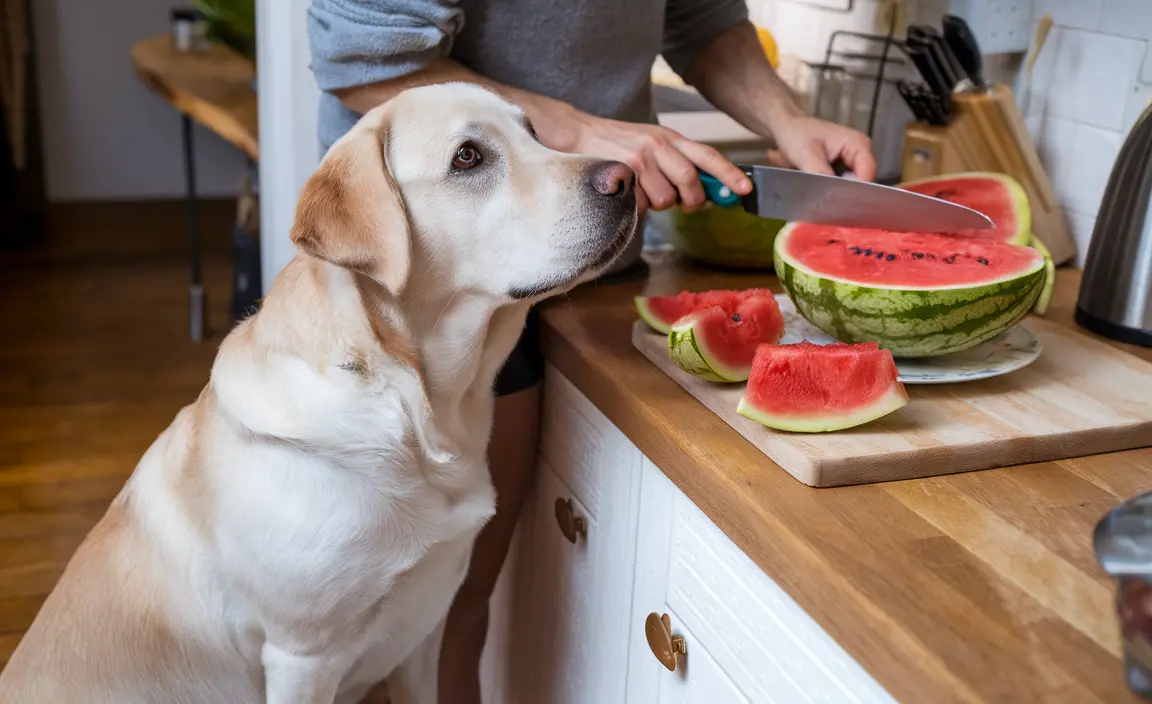As a dog owner, you might be tempted to share your summertime watermelon treat with your furry friend. While watermelon can be a refreshing and nutritious snack for dogs, not all parts of this fruit are safe. Today, we're diving deep into the critical question: can dogs eat watermelon rind?
The short answer is a resounding no. Despite the temptation to share every bite of your delicious watermelon, the rind poses significant health risks to your canine companion that every responsible pet owner should understand.
Why Watermelon Rind is Dangerous for Dogs
Digestive Challenges
Watermelon rind is incredibly tough and fibrous, making it extremely difficult for dogs to digest. Unlike the soft, juicy flesh of the fruit, the rind is a thick, rigid material that can wreak havoc on your dog's digestive system. When consumed, it can lead to uncomfortable and potentially serious gastrointestinal issues.
Potential Health Risks
Eating watermelon rind can trigger a range of health problems for dogs, including:
- Severe stomach pain
- Persistent vomiting
- Diarrhea
- Bloating
- Intestinal blockage
- Choking hazard
Hidden Chemical Dangers
Beyond its tough texture, watermelon rind may also harbor additional risks. Many watermelons are treated with pesticides and chemicals during farming, which can remain on the rind's surface. These substances can be harmful to your dog's health, potentially causing more severe complications than digestive upset.
Safe Watermelon Consumption for Dogs
How to Properly Serve Watermelon
While the rind is off-limits, dogs can safely enjoy watermelon with a few important precautions:
- Remove all seeds before serving
- Cut the watermelon into small, bite-sized pieces
- Serve only the soft, pink flesh
- Limit treats to less than 10% of daily calorie intake
- Always consult with your veterinarian before introducing new foods
Portion Control Matters
Even though watermelon can be a healthy treat, moderation is key. Too much of any human food can disrupt your dog's balanced diet and potentially cause digestive issues. A few small pieces as an occasional treat are perfect.
What to Do If Your Dog Eats Watermelon Rind
Immediate Steps
If you catch your dog consuming watermelon rind, don't panic. Monitor them closely and watch for signs of distress such as:
- Excessive vomiting
- Diarrhea
- Lethargy
- Whining or signs of abdominal pain
- Difficulty passing stool
Veterinary Intervention
When in doubt, always contact your veterinarian. They can provide personalized advice based on your dog's size, breed, and overall health. In some cases, they might recommend bringing your dog in for an examination to rule out potential blockages or complications.
Frequently Asked Questions
Can dogs eat watermelon rind safely?
No, dogs should never eat watermelon rind due to digestive and choking risks.
What should I do if my dog accidentally eats watermelon rind?
Monitor your dog for symptoms and contact your veterinarian if you notice any signs of distress.
Why is watermelon rind bad for dogs?
The rind is tough to digest, can cause intestinal blockage, and may contain harmful pesticides.
How do I prepare watermelon for my dog to eat?
Remove seeds, cut into small pieces, and serve only the soft, pink flesh in moderation.
What are the signs of digestive upset if my dog eats watermelon rind?
Watch for vomiting, diarrhea, lethargy, abdominal pain, and difficulty passing stool.
By understanding these risks and following safe feeding practices, you can ensure your dog enjoys treats without compromising their health. Always prioritize your pet's well-being and consult professionals when in doubt.






